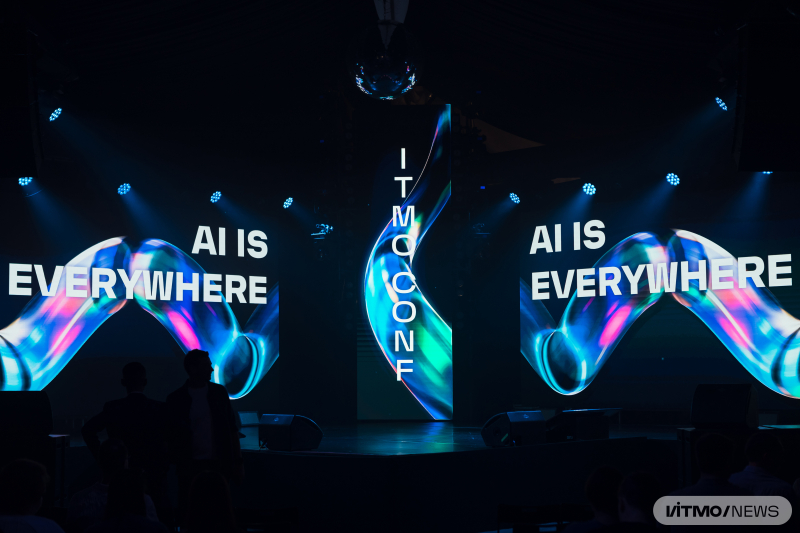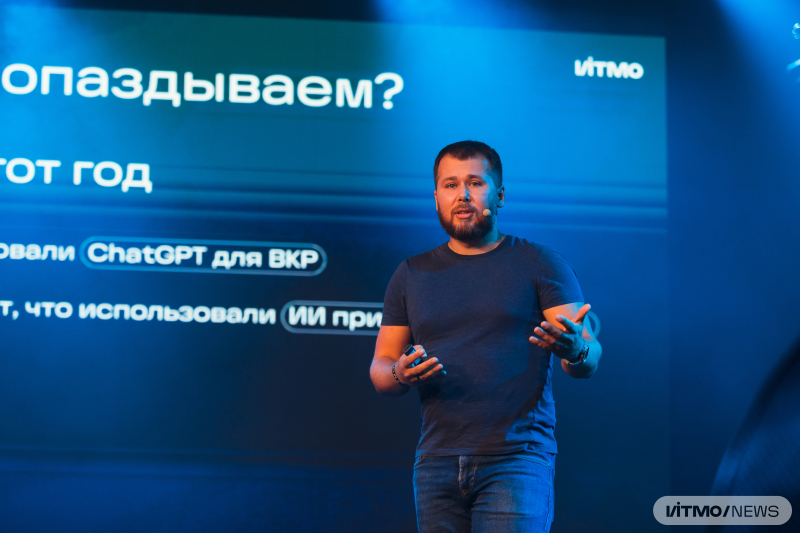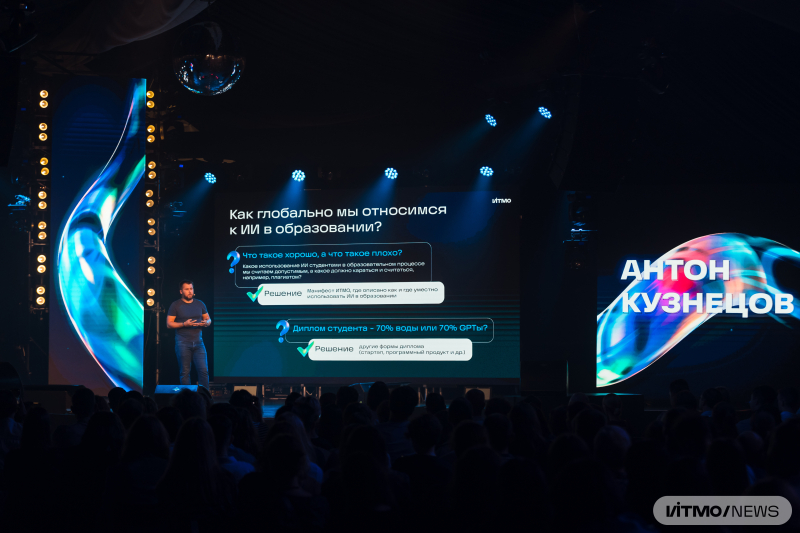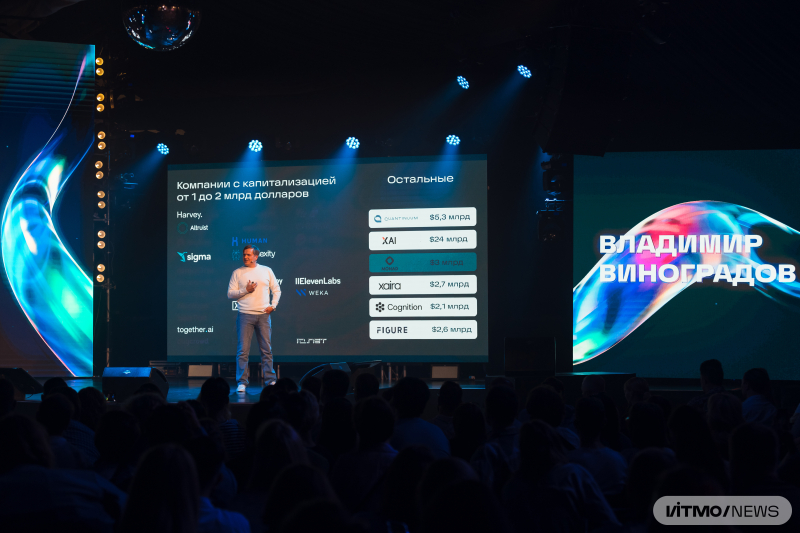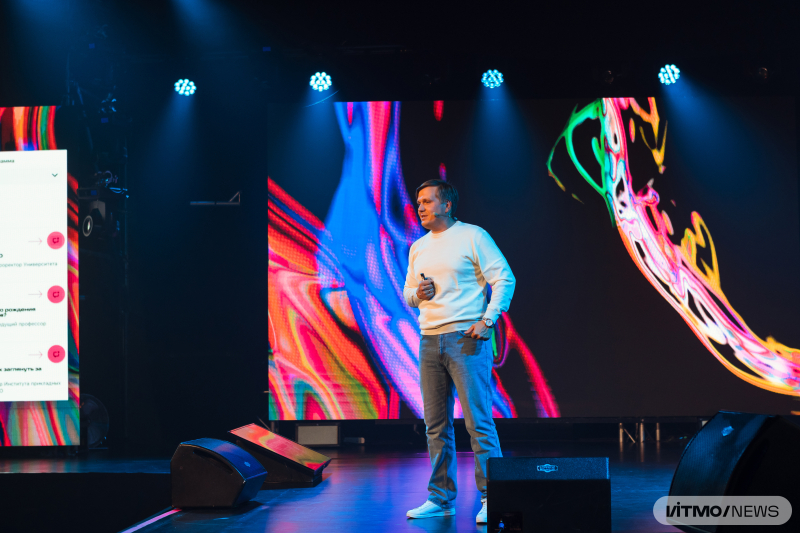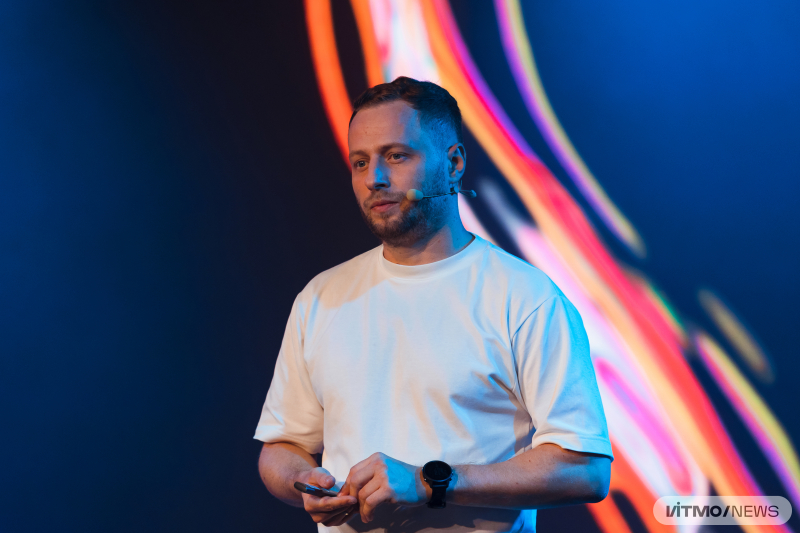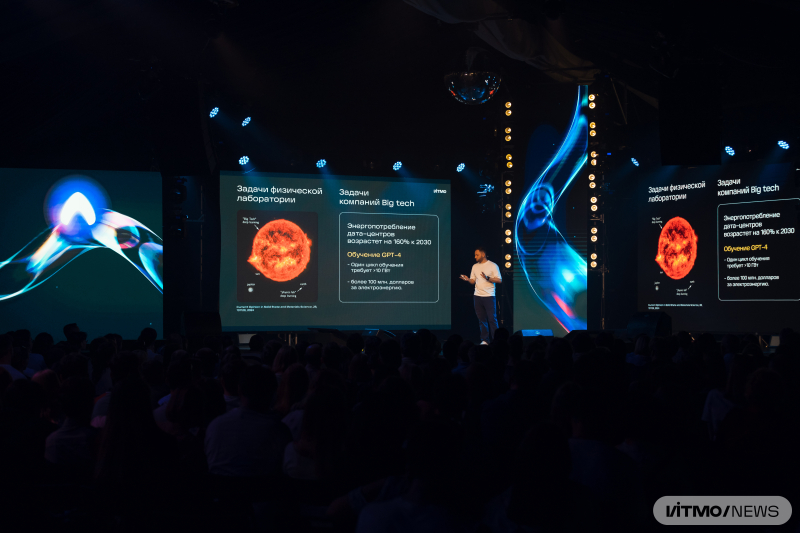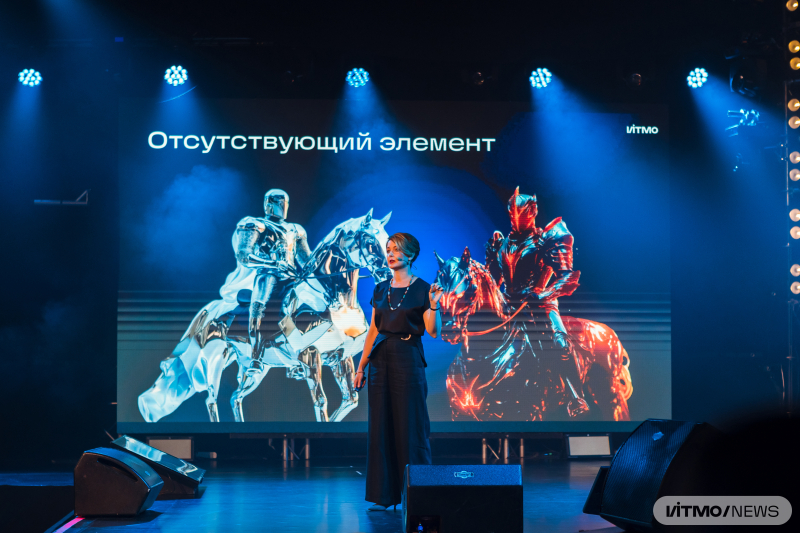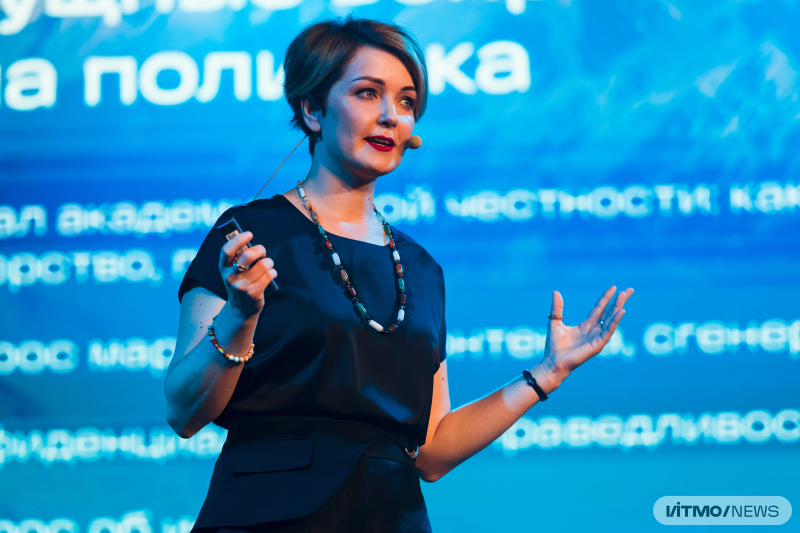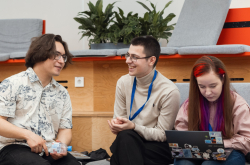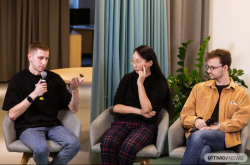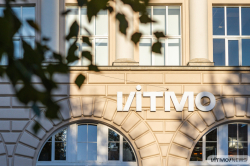ITMO = AI
Daria Kozlova, ITMO's First Vice Rector, launched the discussion by sharing what sets ITMO apart from IT corporations:
First, it is motivated, talented, and ambitious people; this year, we welcomed 2,700 Bachelor’s and 3,000 Master’s students. Secondly, ITMO is a university – a non-profit organization – so, unlike large corporations, we don't aim for profit, which allows us to be a trusted partner and validator of AI technologies for the industry. Lastly, we don't use third-party technologies; instead, we develop our own – our library of basic open-source AI technologies is the largest among universities.
As of today, ITMO University offers 14 educational programs that cover the entire spectrum of AI-related tasks. At the same time, the university is recognized by AI Alliance as an industry leader in AI training. One of the most essential goals for ITMO today is to build an AI environment for teaching, research, and university management, believes First Vice Rector Daria Kozlova.
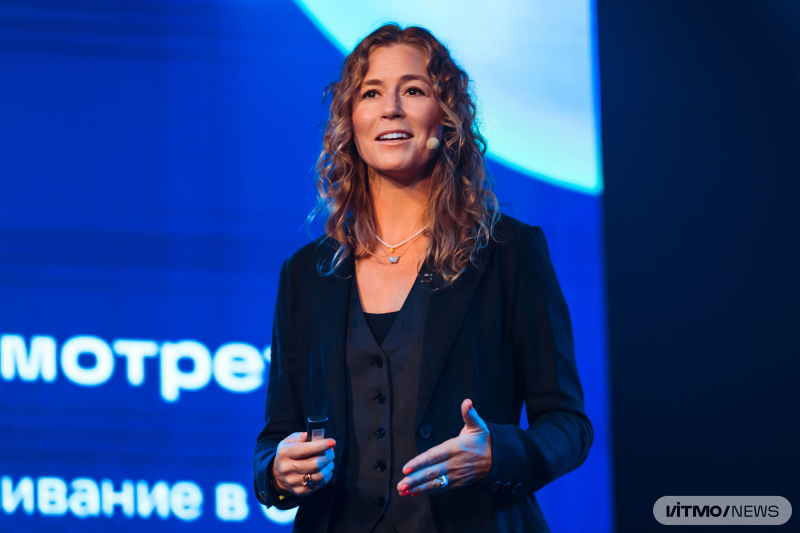
Daria Kozlova. Photo by Dmitry Grigoryev / ITMO.NEWS
AI for education
AI in education means changes. As claimed by Anton Kuznetsov, the head of ITMO's Institute of Applied Computer Science, education has undergone significant changes over several years:
“As the statistics showed, over 60% of students acknowledged using GPT models to write their theses and almost 50% used them to solve academic tasks during the past academic year. About half of them agreed that using AI in this case is plagiarism but continue to do so. 40% of lecturers claim they use AI to develop curricula, while 20% – to generate assignments for students,” noted Anton Kuznetsov.
Changes bring challenges. Here are some approaches to use AI for benefit in the classroom, mentioned by the speakers:
-
Develop a manifesto listing acceptable AI usage for educational purposes by detailing course curricula and defining what use of AI tools is justified and what is considered plagiarism;
-
Revise the approach to thesis defense. As AI-generated papers are becoming more common today, the format of defense is likely to change in the near future and take the form of a startup, software, or a scientific article instead of a traditional paper;
-
Integrate the study of AI tools into all courses and tailor topics to students’ needs through personalized task selection, intelligent assistants in shaping their learning paths, and personal assistant-tutors for studying courses.
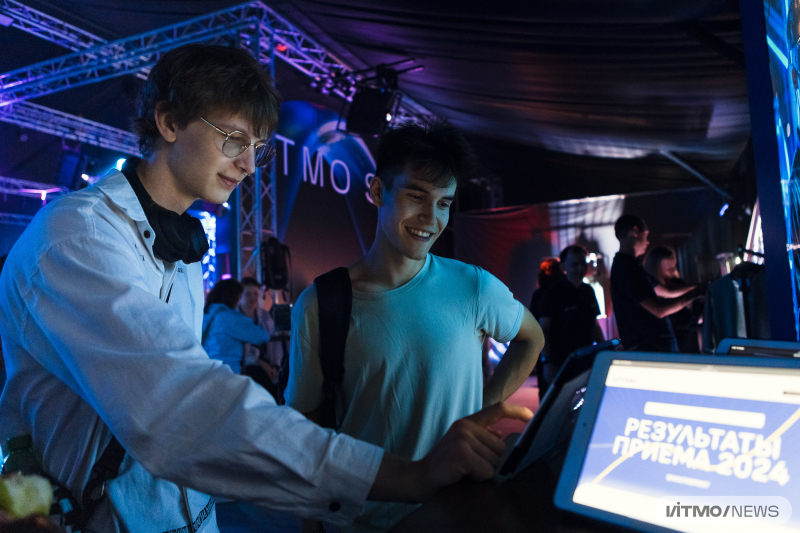
ITMO CONF. Photo by Dmitry Grigoryev / ITMO.NEWS
On becoming a cradle of AI startups
AI startups make new rules. First of all, experience is no longer the core of expertise; in the AI world, where everything is rapidly changing, the ability to learn and adapt is becoming far more crucial. Secondly, startups are made by ideas, not investments. And third, the belief that your product can transform the world is becoming more vital than reasoning.
“Almost half of this year's unicorns are in the AI industry. Furthermore, AI startups are also among the most profitable, with only one focused on hardware. Today, hard skills start to blend with AI,” said Vladimir Vinogradov, the head of ITMO’s ChemBio Cluster.
How can ITMO become a hotbed of leading AI startups? The answer lies in the university’s environment, a free and creative space, where everyone interacts with AI, from administration to educational program developers and scientists.
In Vladimir Vinogradov’s view, ITMO needs more PIs (principal investigators; drivers and mentors), new talents, and top developers who have the necessary skills, experience, and knowledge to create the university’s own showcase of startups; and with their assistance, ITMO will be able to take on a new challenge – collaborating with business to create a unicorn company.
AI for science
Today, some AI solutions outperform traditional methods. According to Alexey Kokhanovskiy, a senior researcher at ITMO's Faculty of Physics, a similar trend is observed in different domains of photonics – all are pursued at ITMO as well.
-
Hardware reverse engineering. In this field, ITMO creates optical nanoantennas for light control. While simple antenna structures are well-studied and easy-to-build, researchers use AI algorithms to develop more complicated ones;
-
Signal processing. A team at ITMO’s Faculty of Physics is working on magnetic resonance morphometry of the heart; combined with neural networks, this approach allows specialists to detect cardiac fibrosis and determine its structure and volume, unlike traditional methods;
-
Automation of complex nonlinear systems: lasers and device fabrication systems. Researchers from the Institute of Laser Technologies and Research Center “Strong AI in Industry” in partnership with Leningrad Laser Systems and IPG Photonics are developing a complex laser welding system, which thanks to AI can automate welding inspection and manage the laser feedback system;
-
Laws in the big data of physical systems. In this domain, the university’s physicists are creating AI software to identify patterns in complex, disordered optical media. The classic solution requires large computing resources, let alone a lot of time and effort from researchers.
“AI can now be found at many laboratories, including physics ones. Therefore, we need to create courses on the topic that would fit into the curriculum and help future physicists learn to not only utilize AI advances but also develop their own AI technologies,” noted Alexey Kokhanovskiy.
AI for the industry
According to Denis Nasonov, a senior researcher at the Research Center “Strong AI in Industry,” large companies nowadays are relying more and more on AI; the number of AI patents issued has grown almost fourfold since 2019.
“The primary benefactor of creation, usage, and development of large language models is business: it is business that creates the largest, quickest, and most advanced language models. Here are some stats. Google spent more than $190 million on training its latest neural network, Gemini Ultra. Investments in generative AI increased eightfold between 2022 and 2023, reaching $26.7 billion. All in all, business collaborations are the most promising when it comes to AI advancement,” said Denis Nasonov.
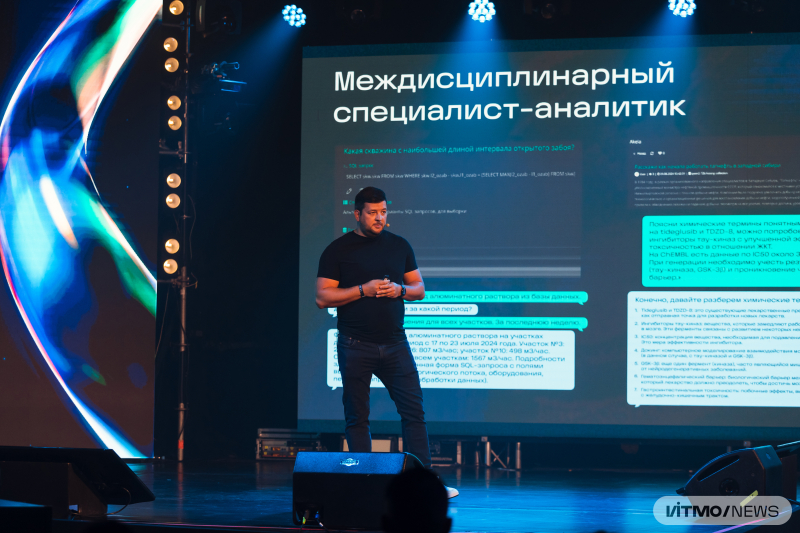
Denis Nasonov. Photo by Dmitry Grigoryev / ITMO.NEWS
ITMO is ready to act as a developer; the university has something to offer, including its project on comprehensive planning of field development. For this task, engineers employ software with a huge number of characteristics that need to be taken into account while developing an optimal design. To minimize routine tasks through the process, developers designed an AI model that generates a construction schedule based on the project’s objectives and resources and thus significantly saves time.
Some products are already implemented at the university. For instance, ITMO utilizes AI as a technical writer. The model analyzes notes, data, and meeting summaries to report on projects’ intermediate stages; it can make a presentation, record an online meeting and write its summary, as well as move tasks to a task tracker.
To make the AI solutions mass-produced and more beneficial, Denis Nasonov suggests launching a collaborative platform of LLM (large language models) solutions. The pilot version will allow university specialists to exchange their best practices, test hypotheses, and create a community to accelerate AI advances. In the future, the platform could be tailored to the needs of industrial partners and other universities.
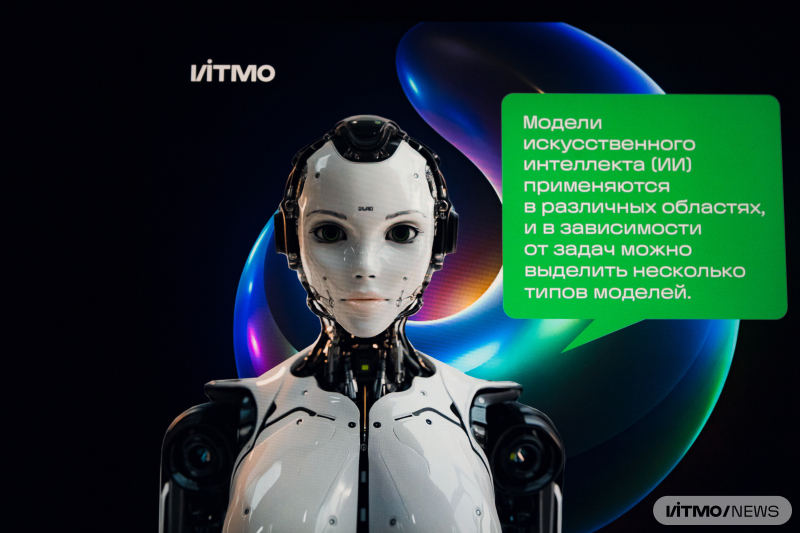
ITMO CONF. Photo by Dmitry Grigoryev / ITMO.NEWS
AI ethics
How do you determine authorship in the era of large language models? What is considered plagiarism today? How should you label AI-generated content? And who will be responsible for the outcomes of AI training? Finding answers to these questions is impossible without a coordinate system that will safeguard against a complete AI ban or its indiscriminate use.
“We set our course toward a competent, thoughtful, and conscious implementation of AI in our lives. That, in its turn, calls for ethical regulations. Our primary task today is to formulate ITMO policies regarding all processes related to AI integration, which includes creating educational programs, doing home assignments, and other tasks. To this end, I encourage all members of ITMO Family to create a community of AI policy authors and work together on AI ethics issues,” emphasized Daria Chirva, an employee at ITMO’s Research Center “Strong AI in Industry” and lecturer at the Institute of International Development and Partnership.
